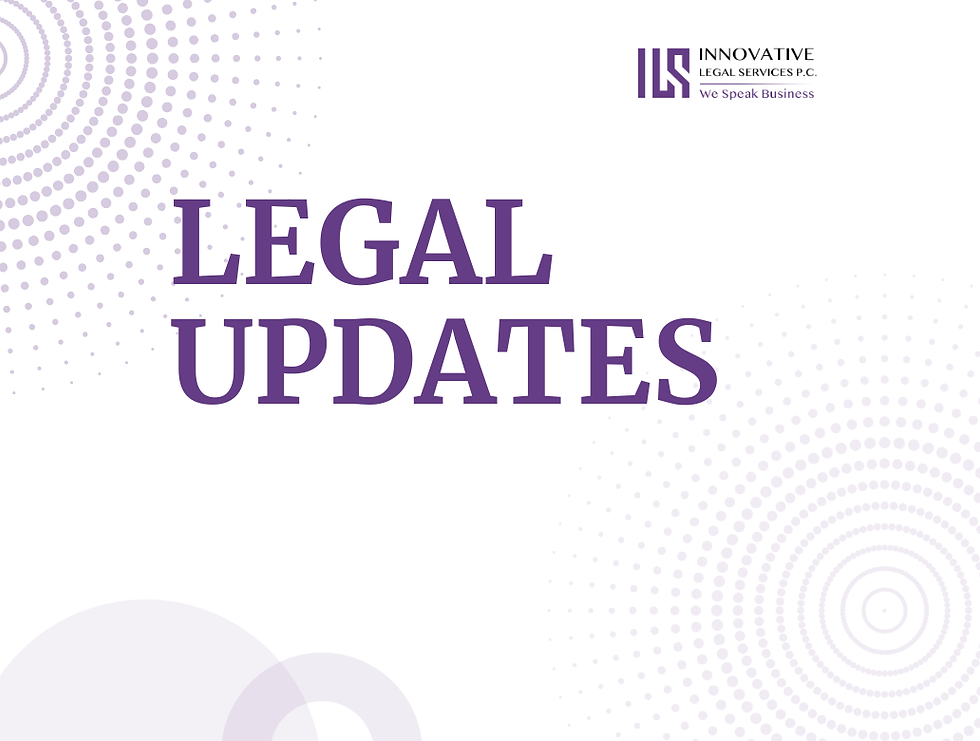Upcoming Changes to Overtime Rules: What Employers Need to Know
- Richard Liu
- Apr 15, 2024
- 2 min read
Updated: Apr 25, 2024
A significant development in U.S. labor regulations has just taken a step closer to reality. The White House Office of Management and Budget (OMB) has completed its review of a new rule from the U.S. Department of Labor that is poised to expand overtime pay protections. This rule, which has been under development since last August, is set to make a substantial impact on the pay structure of millions of American workers. The Department of Labor is anticipated to release the final rule imminently.
For additional information regarding overtime rules, and to find out how this could impact your business, please contact our Managing Partner, Richard Liu, at richard.liu@consultils.com.

Detailed Overview of Proposed Changes
The FLSA is the federal law that establishes minimum wage, overtime pay eligibility, and other employment standards. Under current rules, employees are entitled to overtime pay at one and one-half times their regular rate for every hour they work beyond 40 in a workweek, unless they fall under specific exemptions. These exemptions apply to employees in executive, administrative, or professional roles as defined by the DOL’s regulations, requiring both a duties test and a salary basis test.
The proposed changes aim to adjust the salary thresholds that determine exemption from overtime:
Increase in Salary Thresholds: The standard salary level for exemption will be raised from $684 per week ($35,568 annually) to $1,059 per week ($55,068 annually). This substantial increase means that employees earning less than $55,068 will now qualify for overtime pay.
Adjustment for Highly Compensated Employees: The threshold for "highly compensated employees" will rise from $107,432 to $143,988 annually, expanding overtime eligibility to more workers at higher income levels.
Automatic Updates: Salary thresholds will be updated every three years based on current wage data to ensure they reflect economic realities.
Steps Employers Should Take
With these impending changes, businesses should begin preparations now to ensure compliance. Here are essential steps to consider:
Evaluate Employee Roles: Assess which employees are exempt from overtime and determine if their status will change.
Consider Reclassification: Reclassify employees who no longer meet the exemption criteria.
Update Record-Keeping: Maintain accurate work hour records for nonexempt employees to avoid disputes.
Adjust Budgets: Anticipate and prepare for potential increases in payroll expenses.
These regulatory updates represent a significant shift in recognizing the changing dynamics of work and compensation in the U.S. Employers should review and adjust their employment practices promptly.
For additional information regarding overtime rules, and to find out how this could impact your business, please contact our Managing Partner, Richard Liu, at richard.liu@consultils.com.

Richard Liu, Esq. is the Managing Counsel of ILS. He serves clients as a management-side defense lawyer specializing in employment and business litigation. Richard is also an expert on litigation prevention and compliance. He regularly advises Fortune 500 companies and startups on employment, labor, and commercial matters.
Email: richard.liu@consultils.com | Phone: 626-344-8949
*Disclaimer: This article does not constitute legal opinion and does not create any attorney-client relationship.

Comments